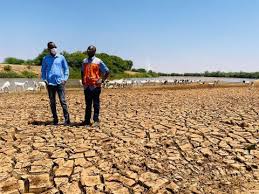He made the remark in Baku, Azerbaijan while marking Africa Day on the margin of COP29 event being held under the theme of “Scaling up Financing for Climate Adaptation and Green Growth in Africa,” according a statement issued Thursday by ECA.
Gatete said while African countries require adequate, predictable and accessible finance, the structure of existing climate finance continues to perpetuate inequities.
“Today, much of the available climate funding is disbursed as loans, and not as grants, adding to Africa’s already high debt levels,” said Gatete, noting that the daily realities grow worse for Africa.
To address our climate and economic challenges, the ECA presents five critical policy priorities that outline a path toward an empowered, climate-resilient Africa; Gatete said first, we must leverage Africa’s critical minerals to drive a green economic transformation.
Africa’s wealth of clean energy sources, combined with its critical minerals, has the potential to power a climate-resilient future. The battery and electric vehicle industries – expected to be worth trillions by 2050 – demonstrate Africa’s strategic role in the global green transition.
Through initiatives like the Democratic Republic of Congo and Zambia’s collaboration on a Special Economic Zone for battery value chains, Africa can lead in clean energy production, create jobs and promote sustainable economic growth.
Second, he said, it is imperative that we enhance Africa’s carbon capture potential through structured, nature-based solutions.
“Africa’s ecosystems, particularly the Congo Basin, hold vast capacity for carbon storage, which could mobilize up to US$82 billion per year through high-integrity carbon credits,” he said, urging for establishing a robust and transparent system.
He said this is why the ECA is supported initiatives like the Congo Basin Climate Commission’s carbon market protocols to build a market those both safeguards Africa’s interests and contributes to global climate goals. We are replicating these efforts in the Sahel region and African island states.
Gatete also called for establishing the New Collective Quantified Goal (NCQG), a goal that is based on real needs, which is estimated at $1.3 trillion for Africa.
“Available financing continues to fall short, and our public finances must be complemented by private funds to build resilience, protect diversity, and foster climate-responsive development,” he continued.
MG/abj/APA


